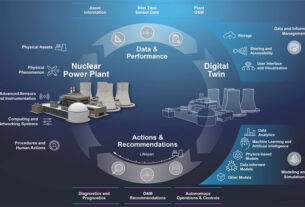In the age of information overload, presenting data in a concise, engaging, and visually appealing manner is more crucial than ever. This is where infographic posters come into play. These powerful tools transform complex information into digestible, easy-to-understand visuals, making them an invaluable resource in education, business, marketing, and more. In this guide, we’ll explore what infographic posters are, their benefits, how to create them, and their various applications. You Can Also Read This How Holistic Jewelry Can Enhance Your Wellbeing
What is an Infographic Poster?
Definition and Overview
An infographic poster is a visual representation of information, data, or knowledge intended to present complex information quickly and clearly. Through the use of compelling visuals, charts, and minimal text, these posters make the absorption of information more accessible and engaging compared to traditional text-heavy documents.
Key Elements
- Visuals: The backbone of any infographic, including images, icons, and colors.
- Data: Accurate and relevant data is crucial, often represented through charts, graphs, and statistics.
- Text: Concise and to the point, providing necessary context or explanations.
- Layout: A well-organized structure that guides the viewer’s eye through the information.
Benefits of Infographic Posters
Enhanced Engagement
Visual content is more engaging than text alone. Infographics can capture attention with their aesthetic appeal, making them more likely to be viewed and shared.
Improved Comprehension
By breaking down complex information into visual chunks, infographics make it easier for the audience to understand and remember the content.
Versatility
Infographic posters can be used across various fields for numerous purposes, from educational materials to marketing campaigns, making them incredibly versatile.
How to Create an Infographic Poster
Understanding Your Audience
Before you start, knowing your audience is crucial. The design and content should cater to their interests and level of understanding.
Choosing the Right Tools
Numerous software options are available for creating infographics, ranging from simple online tools to professional design software.
Designing Your Infographic
- Select a Template or Create From Scratch: Depending on your skill level and the tool you’re using, you can choose a pre-designed template or start with a blank canvas.
- Organize Your Data: Decide what information is most important and how it should be structured.
- Incorporate Visual Elements: Use charts, icons, and images to represent your data visually.
- Keep It Simple: Avoid clutter and focus on a clean, straightforward presentation.
Applications of Infographic Posters
Education
In educational settings, infographic posters can simplify complex subjects, making them easier for students to understand and retain.
Marketing
Businesses use infographics to communicate the value of their products or services effectively, engage with their audience, and enhance their brand awareness.
Public Awareness
Governments and non-profits use infographics to raise awareness about important issues, such as health, safety, and environmental concerns.
Conclusion
Infographic posters are a dynamic and effective way to communicate information. By combining visual appeal with data and text, they can make complex information accessible and engaging for a wide range of audiences. Whether you’re a teacher, marketer, or activist, mastering the art of creating infographic posters can significantly enhance your message’s impact.



